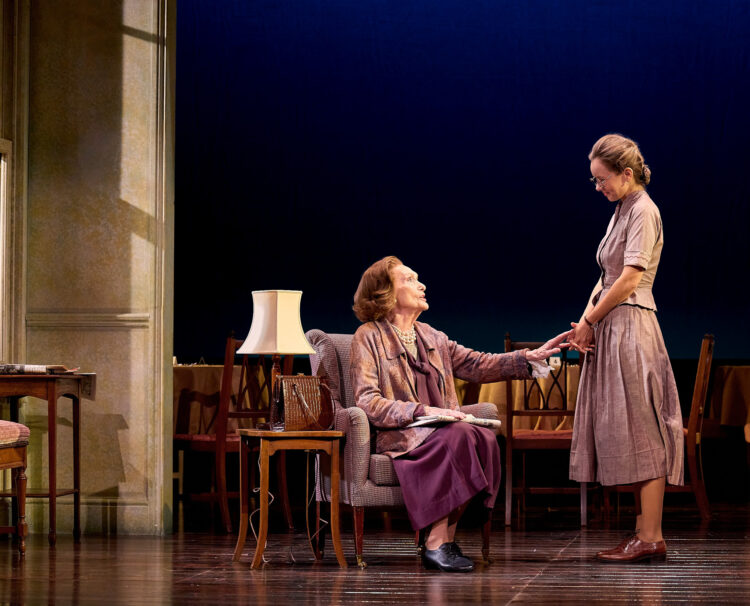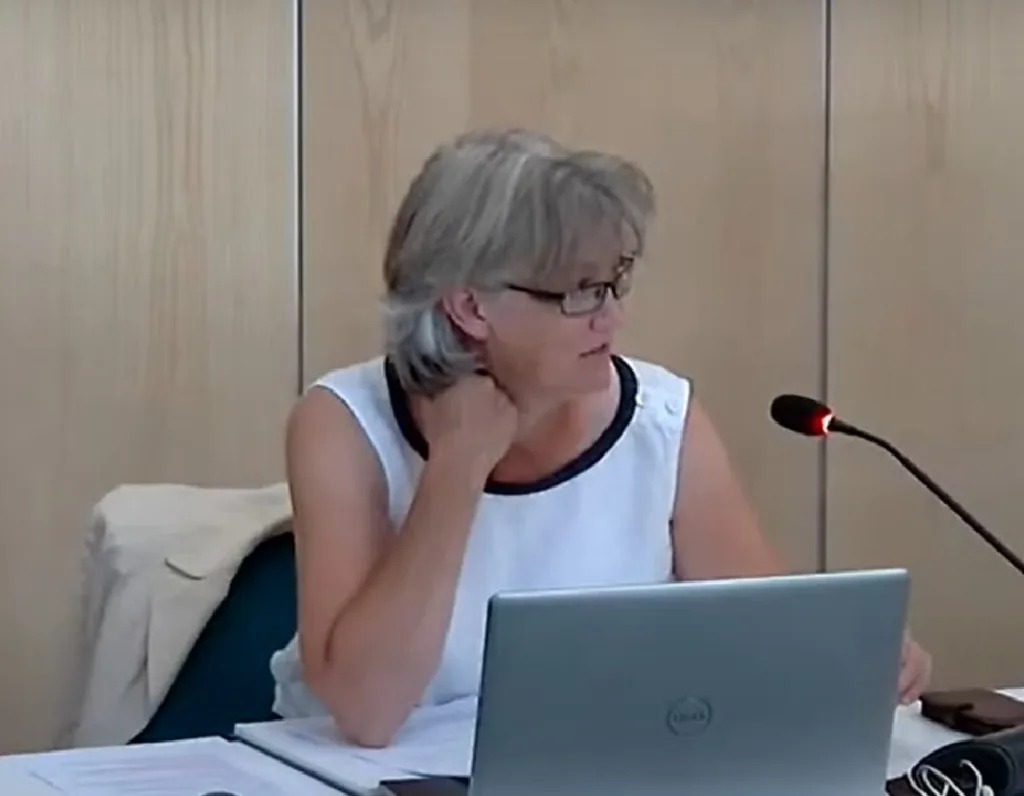These are two beautifully written one-act plays, each with light and shade, plays riven with sadness but each with a hopeful message at the end. Here we see them expertly performed with soul and with humour.
Table Number Seven was written by Terence Rattigan as part of a double bill with Table by the Window, both taking place at The Beauregard Private Hotel in Bournemouth.
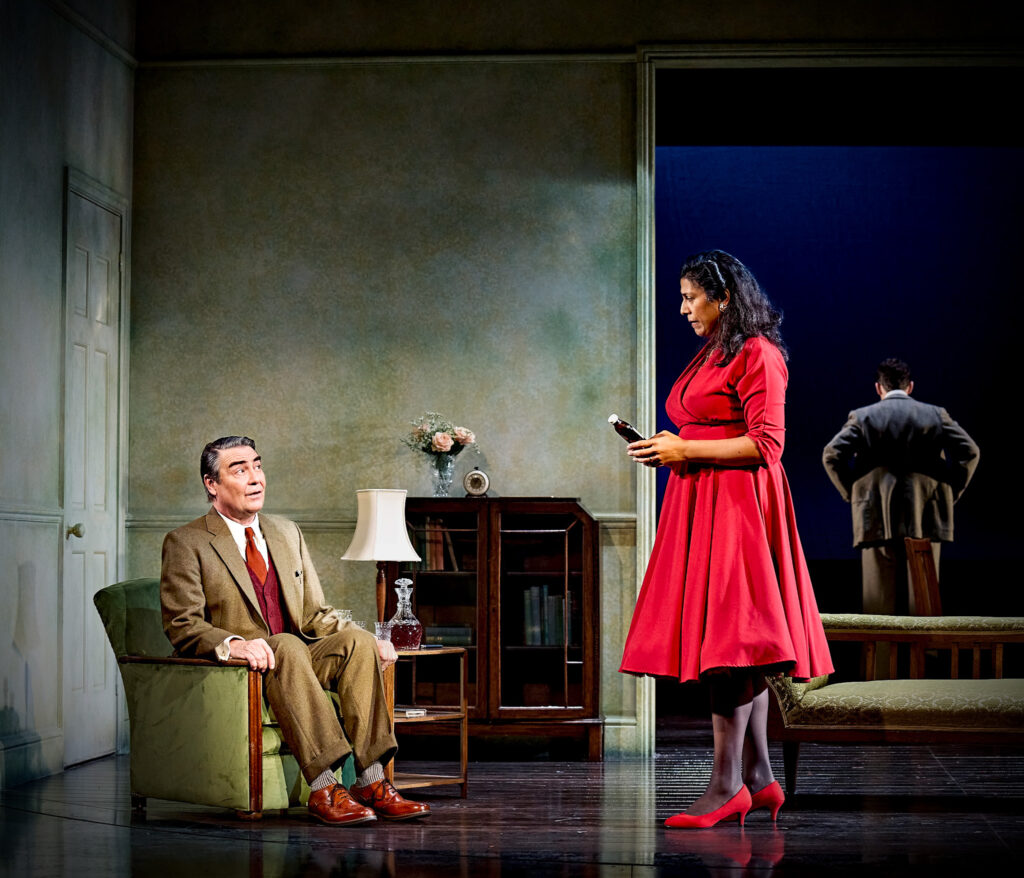
In 1954, when British cities were still full of rubble from the Blitz, it wasn’t uncommon for people to live in hotels.
The characters in Table Number Seven are residents who think they know each other until one of them is arrested for a crime they think brings shame upon them all.
Major Pollock, in this production pleads guilty at the local magistrates’ court to importuning men.
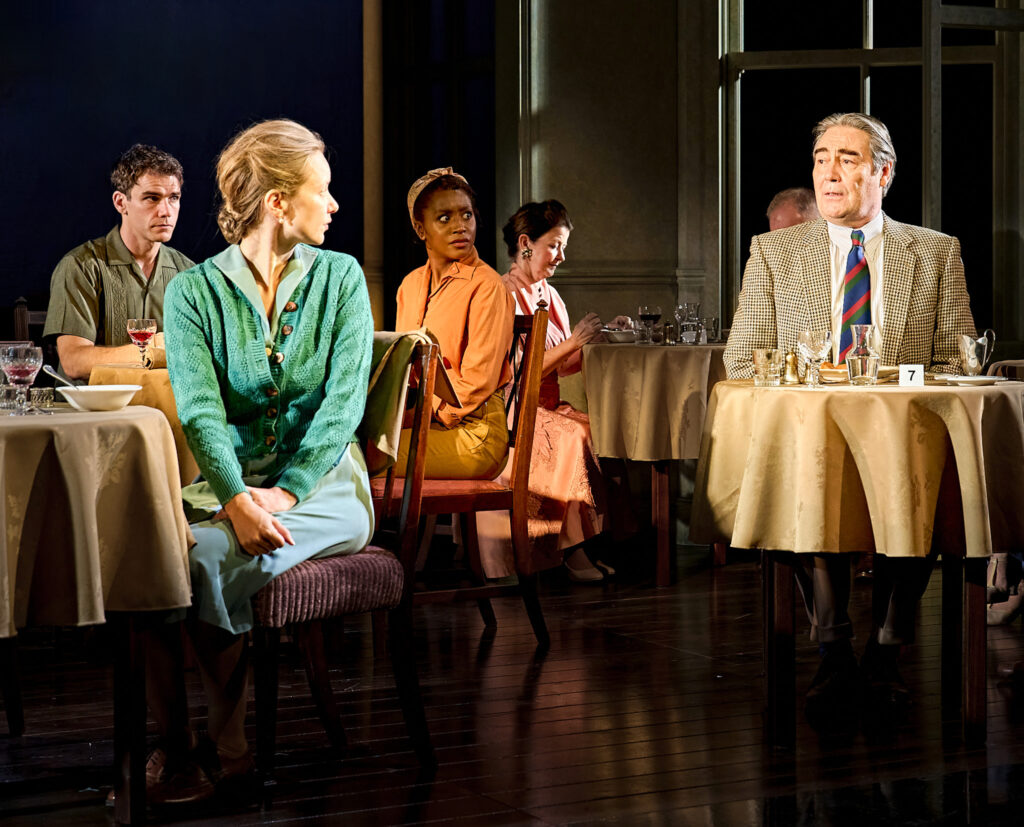
This is the version Rattigan really wanted to write. In 1954 male homosexuality was a crime punishable by imprisonment – Rattigan’s original script was different.
Instead, the Major sexually harassed women at a cinema. This was more acceptable to the Lord Chamberlain’s censorship rules than a man asking other men suggestively for a light for his cigarette.
Rattigan wrote the alternative version (staged here) in 1956 for a production in New York but was persuaded not to use it and it remained undiscovered for nearly 40 years until 1995.
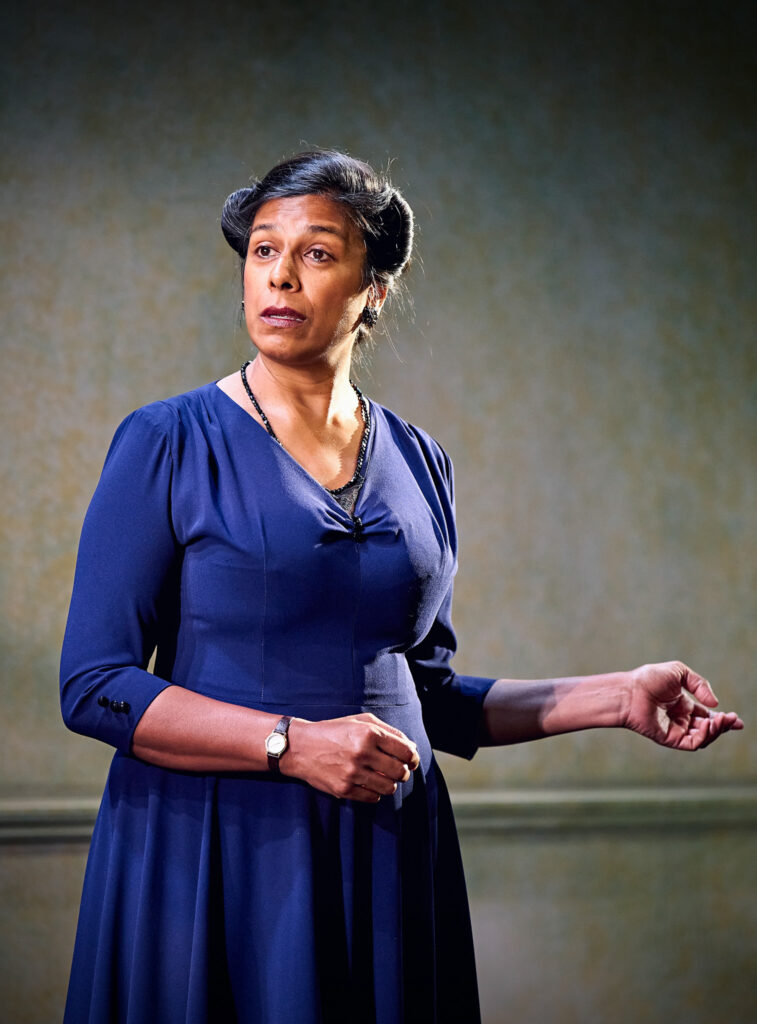
Major Pollock, who we find has created a valiant wartime history for himself – and isn’t actually a major at all is played immaculately by Nathaniel Parker, whose soldier’s body language and upright – yet slightly hesitant – demeanour is the more poignant when the major confesses that he lies about his past because he doesn’t like who he is.
This is an unforgettable performance, strong, subtle, and moving.
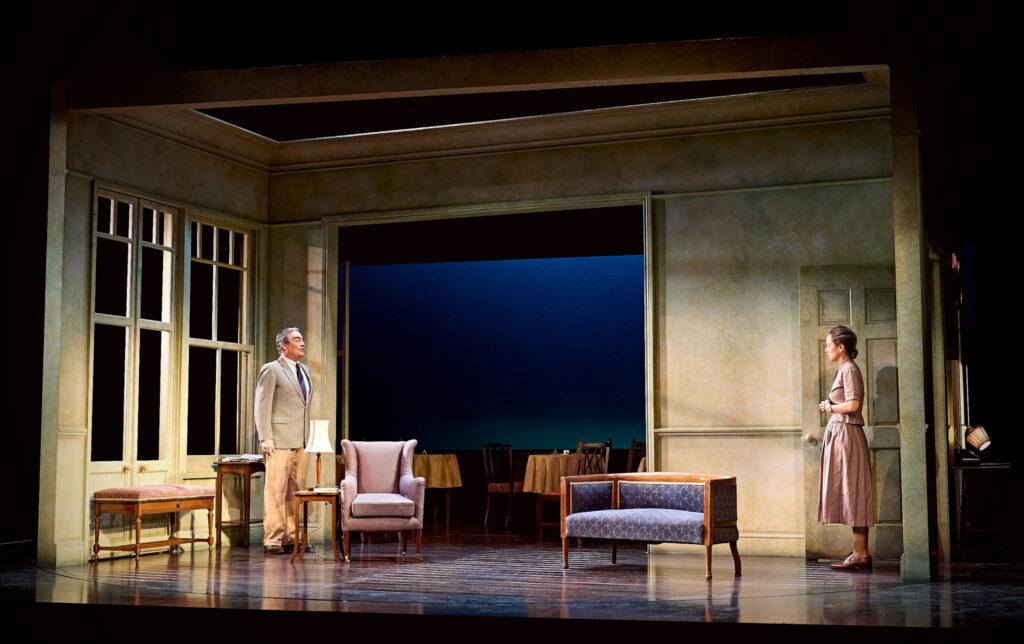
Sian Phillips as Mrs Railton-Bell the scandalised lady guest who summons the other residents to rise up against the forlorn Major and ask the management to request him to leave, with Richenda Carey and Pamela Miles as her reluctant fellow conspirators provide wonderful vignettes – all of them with perfect comic timing delivering the humour which sweetens this ostensibly sad play.
We see them as rounded characters as we do with Sybil Railton-Bell Mrs Railton-Bell’s meek and oppressed daughter played by Alexandra Dowling. Also, Lolita Chakrabarti as the hotel manager.
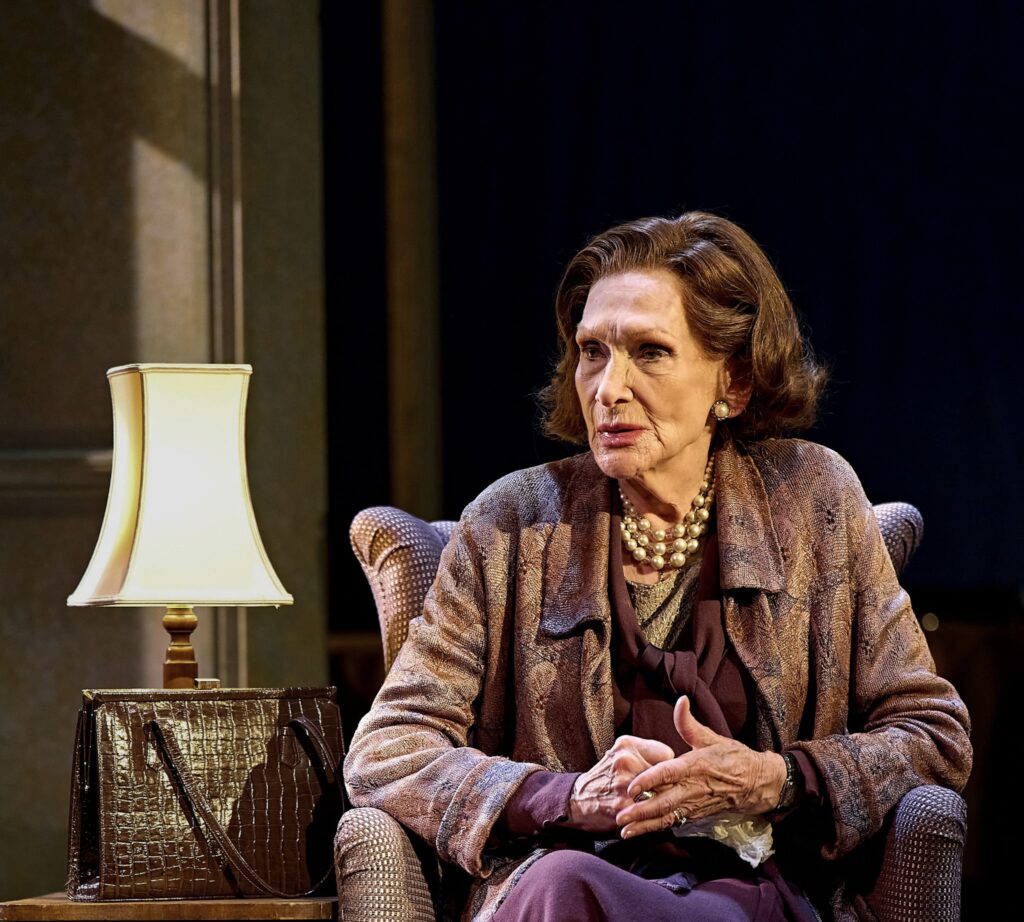
These strong performances are carried over into quite different characters in The Browning Version centring on retiring classics master Andrew Crocker-Harris –again a golden performance by Nathaniel Parker.
The title refers to a translation of Aeschylus’s play Agamemnon by Robert Browning. In each drama a wife has betrayed her husband.
The difference is that Agamemnon’s wife Clytemnestra and her lover have killed her husband, whereas in Rattigan’s play the man is tortured while he is still alive.
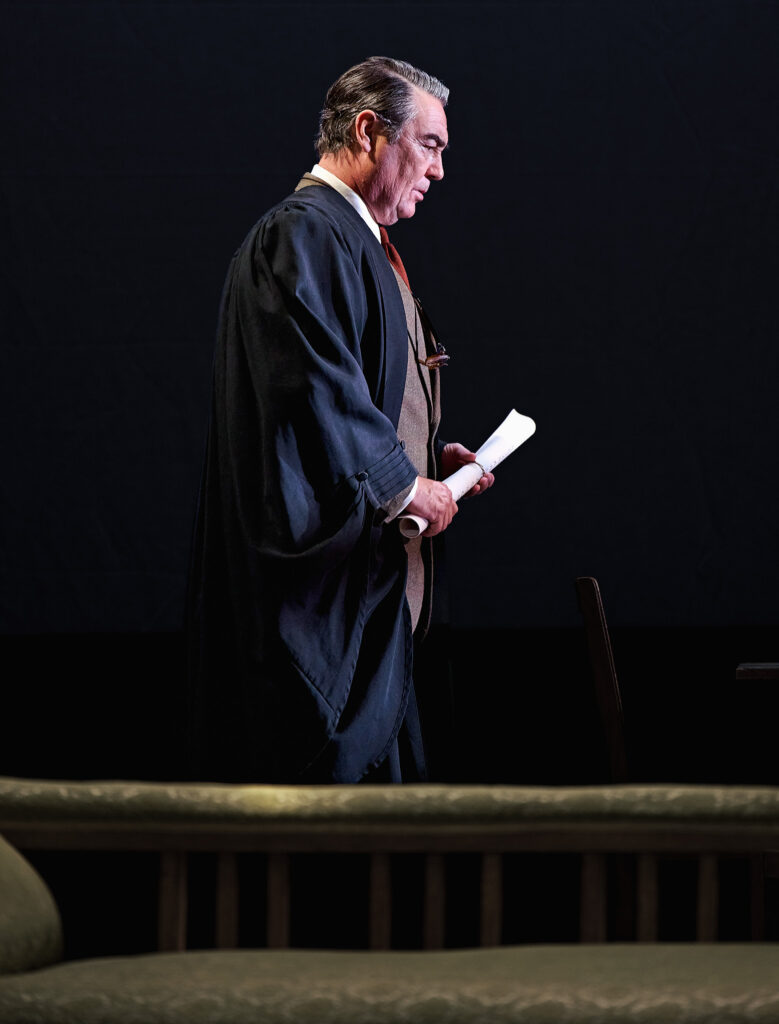
With Jeremy Neumark Jones as Frank Hunter the wife’s lover, Simon Coates as Dr Frobisher the wonderfully observed headmaster and Bertie Hawes as schoolboy John Taplow, this is a moving and unforgettable version of a piece, which like Table Number Seven has a defeated man finally given the strength to be himself and turn the tables on life.
Directed by James Dacre, these are fast-paced, lively plays that amuse with their ironies and wit. Artfully delivered.
Summer 1954 is at Cambridge Arts Theatre until Saturday, November 16 then touring.


